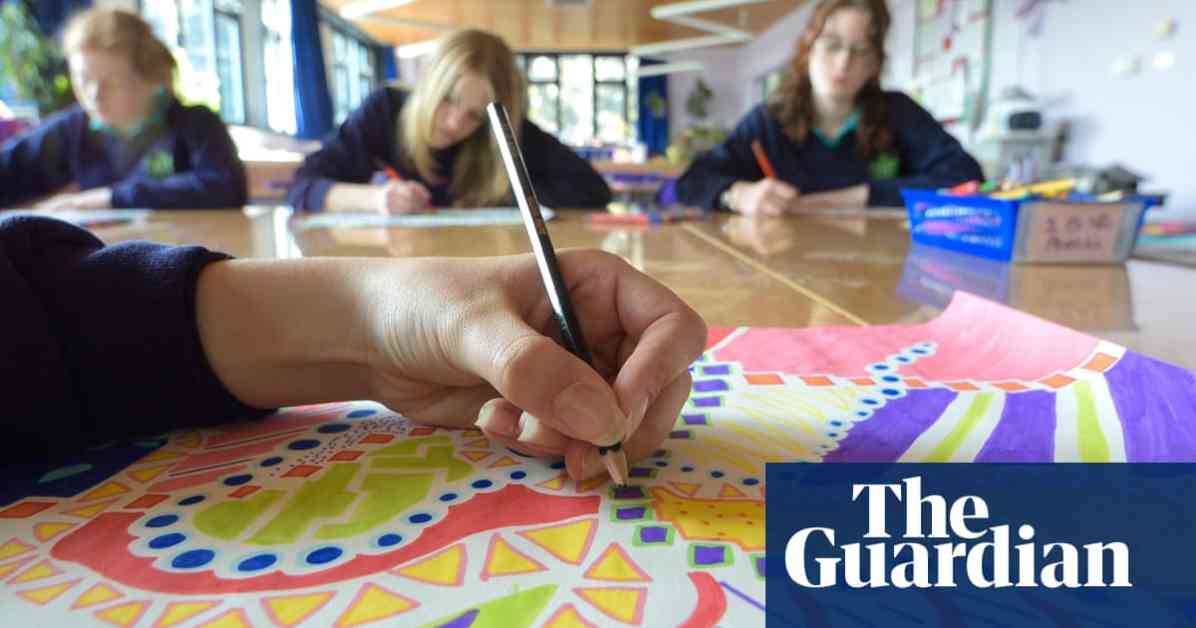Leading cultural figures have expressed doubts about the government’s commitment to restoring the creative arts in English schools, with one warning that Labour has “lost the plot” and “the current signs are they are worse than the Tories”. When Labour won the election, it promised to expand opportunities for working-class children by broadening the school curriculum to include more drama, art, music, and sport alongside the core academic subjects. The plans were welcomed but new government proposals to let artificial intelligence companies train their models on copyright-protected work without permission have shaken confidence in Labour among artists and creatives.
Renowned writer Lee Hall, known for works such as Billy Elliot, is an ambassador for Arts and Minds, a group advocating for all children to have the right to study creative subjects and for the full restoration of arts funding in schools. Hall expressed deep concerns about the government potentially sidelining the arts, citing a lack of understanding. He criticized Labour for what he described as a fundamental attack on all artists by proposing to suspend copyright protections and allow AI companies to use copyrighted work without licenses. This move, according to Hall, would deal a severe blow to writers and artists, leading him to believe that Labour has veered off course in supporting the arts.
The government is reportedly reconsidering its proposals following a backlash and is expected to release an interim report on its curriculum and assessment review soon. Critics have been vocal in calling for the elimination of the English baccalaureate (Ebacc), which focuses on highly academic subjects and excludes the arts. The Ebacc also forms the basis for a school’s progress 8 score, influencing its ranking and potentially discouraging arts education.
Challenges in Arts Education
Artist Bob and Roberta Smith, also known as Patrick Brill, who conducts workshops for children interested in pursuing arts education, highlighted the decline in arts GCSE and A-level enrollments since the introduction of the Ebacc in 2011. He emphasized the need for Labour to abandon the Ebacc and reform progress 8 to support creative children effectively. The arts advocate raised concerns about the lack of opportunities for children, especially those from working-class backgrounds, to engage in arts education.
Renowned writer Michael Rosen echoed skepticism about Labour’s promises, suggesting a pattern of past governments failing to fulfill commitments in the education sector. Rosen expressed doubts about the current government’s ability to deliver on its pledges, pointing out a trend of aligning with conservative educational theories. His comments underscored the need for concrete actions to support creative pursuits among students.
Actor Jamie Kenna, who faced challenges as a working-class child pursuing a career in the arts, emphasized the importance of accessibility in arts education. Kenna highlighted the need for all children to have the opportunity to follow their passions and dreams, irrespective of their economic background. Choreographer Arlene Phillips shared a similar sentiment, reflecting on how early exposure to the arts can be life-changing for aspiring artists.
Advocacy for Inclusive Arts Education
Smith emphasized the importance of diverse voices in the arts, advocating for equal representation and opportunities for all individuals, regardless of their backgrounds. The artist’s call for inclusivity resonates with the broader push for democratizing access to arts education and ensuring that creativity is not limited by socioeconomic factors. Phillips echoed these sentiments, underscoring the transformative power of arts education in shaping young lives.
In response to criticisms, a government spokesperson reaffirmed the administration’s commitment to enhancing educational standards and expanding access to art, music, and drama. The spokesperson outlined forthcoming initiatives to broaden the curriculum and allocate additional funds to support schools. Despite the ongoing debate and concerns raised by cultural figures, the government remains focused on promoting a holistic educational experience for all students.
As discussions around arts education policies continue, the voices of artists, educators, and advocates play a crucial role in shaping the future of creative learning in English schools. The intersection of policy, creativity, and accessibility underscores the need for a comprehensive approach to fostering artistic talent and nurturing the next generation of cultural innovators. Through collaborative efforts and informed decision-making, the landscape of arts education can be reshaped to empower students from diverse backgrounds and cultivate a vibrant creative community.

